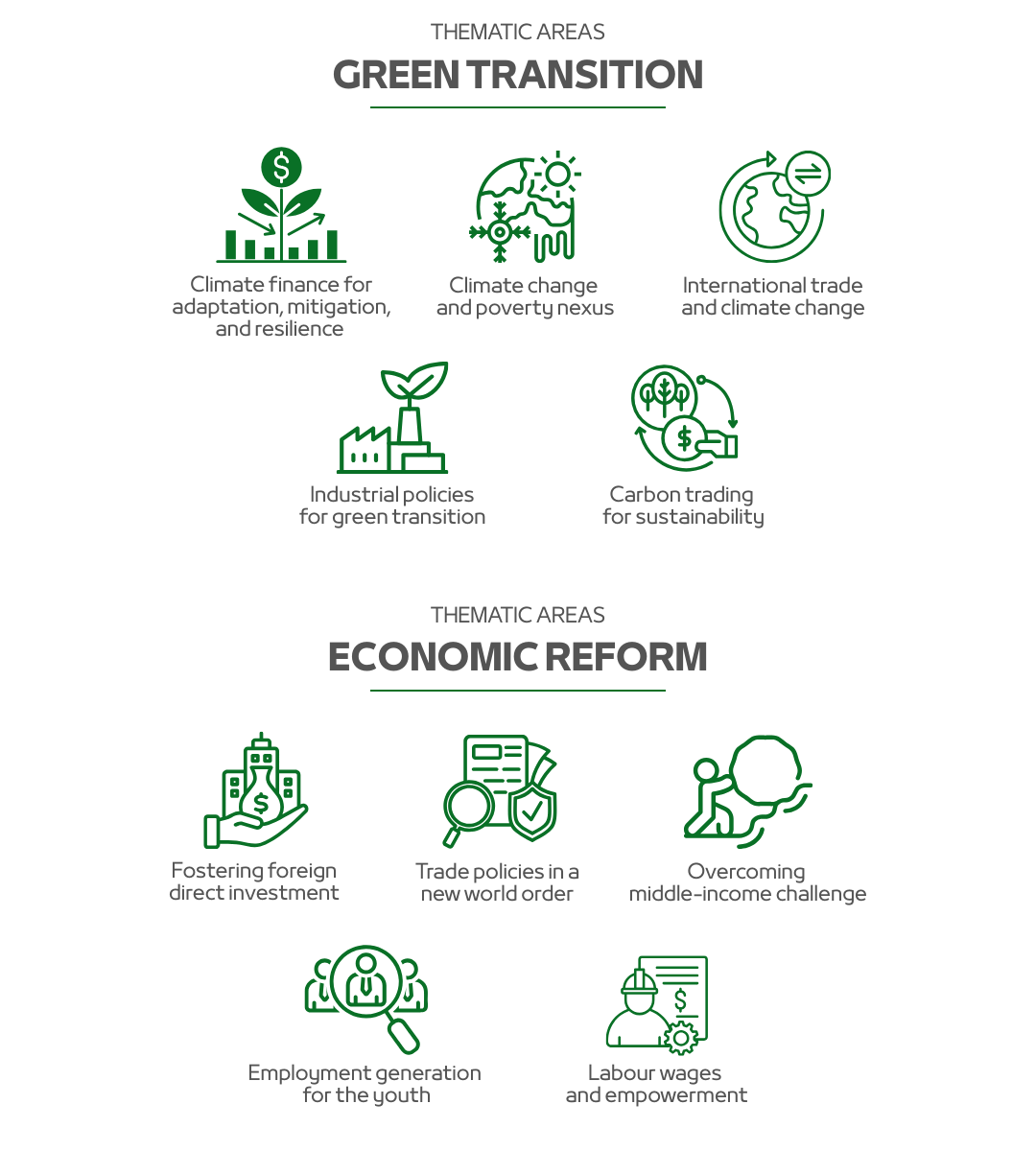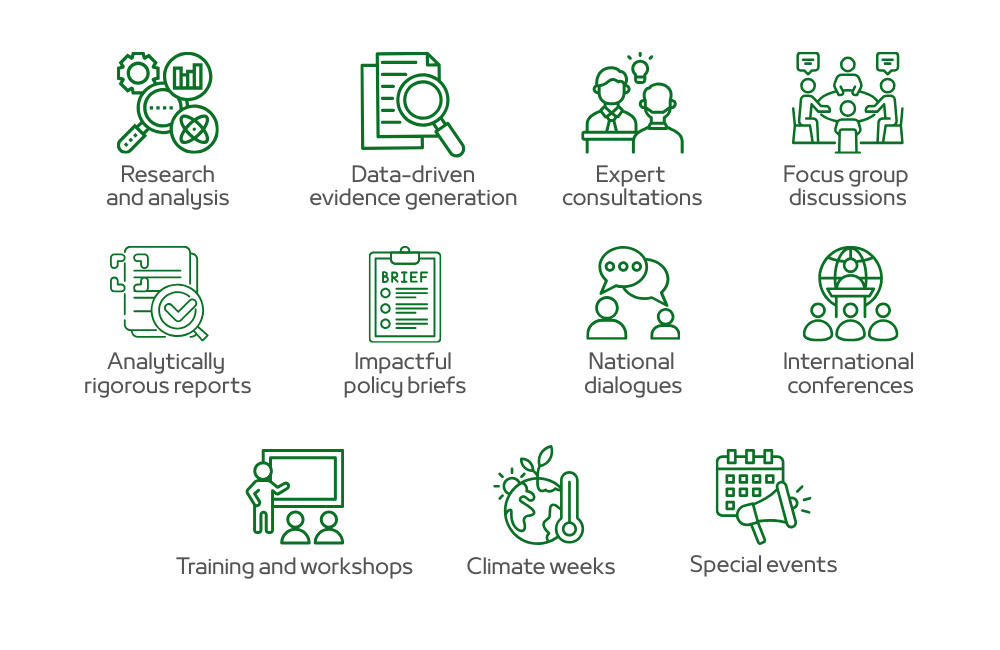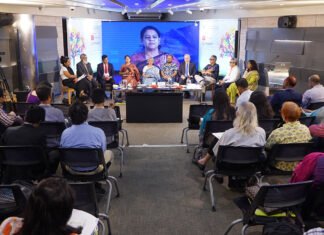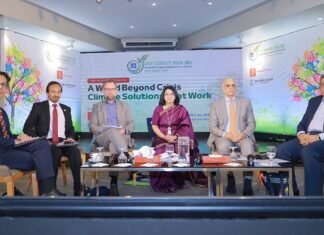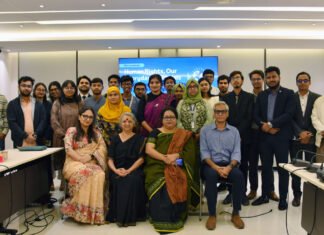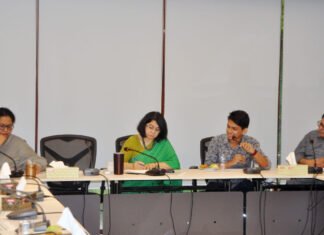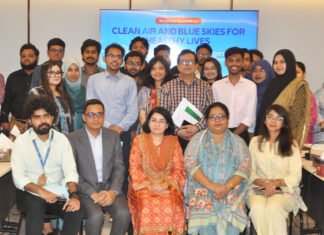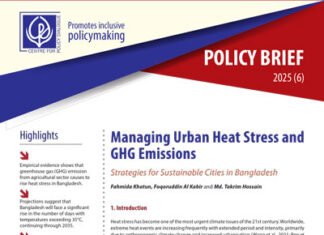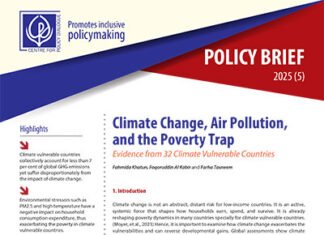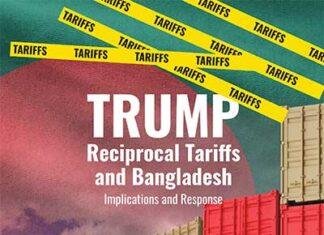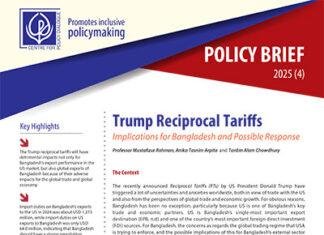
 The Centre for Policy Dialogue (CPD), in partnership with the Embassy of Denmark in Bangladesh, is implementing this project over a four-year period from January 2025 to December 2028.
The Centre for Policy Dialogue (CPD), in partnership with the Embassy of Denmark in Bangladesh, is implementing this project over a four-year period from January 2025 to December 2028.
Bangladesh’s economy is at a crossroads. Despite several achievements since its independence in 1971, Bangladesh has been experiencing non-inclusive economic growth, manifested through increased socio-economic inequalities. The benefits of economic advancements have not been distributed among the larger population of the country, leaving them vulnerable to external and domestic economic shocks. Along with economic vulnerabilities, climate change-induced shocks such as natural disasters, cyclones, floods, and droughts impact the people of Bangladesh, particularly in coastal and disaster-prone areas. The unidirectional growth pattern has focused on the growth of gross domestic product (GDP), ignoring the implications of climate change-related challenges. However, without integrating economic, social and environmental goals in the development framework, Bangladesh cannot achieve sustainable development. These issues must be addressed through a broader consensus between the policymakers and citizens. This project will contribute towards delving into the current challenges and recommending a set of actionable agenda that will help steer Bangladesh towards economic growth and green transition.

Conference Proceedings
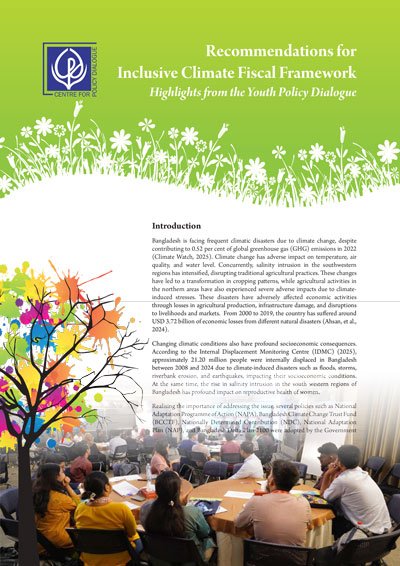
Recommendations for Inclusive Climate Fiscal Framework – Highlights from the Youth Policy Dialogue
Bangladesh, despite contributing only 0.52% of global greenhouse gas emissions, faces frequent climate-induced disasters that disrupt agriculture, livelihoods, and economic activities, causing cumulative losses of around USD 3.72 billion between 2000 and 2019. Climate change has also triggered significant social challenges, including internal displacement of over 21 million people and adverse health impacts, particularly due to salinity intrusion in southwestern regions. While the government has adopted policies such as NAPA, BCCTF, NDC, NAP, and the Bangladesh Delta Plan 2100, gaps in climate financing and weak implementation hinder effective climate action. Addressing these challenges, the Centre for Policy Dialogue (CPD) organised the Youth Policy Dialogue during CPD Climate Week 2025, engaging young leaders nationwide to discuss inclusive climate solutions and the need for improved climate finance management.
Find more >>
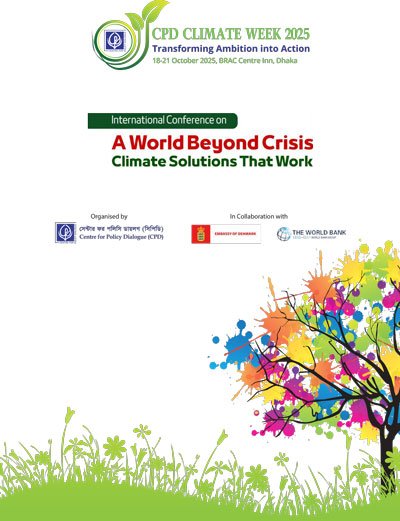
International Conference on A World Beyond Crisis Climate Solutions That Work
The objective of the conference was to foster innovation, collaboration, and advance structured dialogues among multiple stakeholders, including government policymakers, think tanks, academia, experts, Civil Society Organisations (CSOs), Non-Government Organisations (NGOs), Community-Based Organisations (CBOs), the private sector, youth groups, development partners, and the media. Six thematic roundtables were held in the first day of the conference. The roundtables themes included (i) Operationalising NDCs in Climate Vulnerable Countries; (ii) Climate and Gender: Integrating Equity in Policies; (ii) Carbon Pricing and Carbon Markets in Bangladesh, (iv) Climate-smart Agriculture and Food Security, (v) Climate Finance, Landscape, Policy and Governance; and (vi) Parallel Session 6: Achieving Debt Sustainability in the Face of Climate Change.
Find more >>
Conference Web Post
Driving NDC Implementation in Climate-Vulnerable Nations
Align National Priorities with Global Climate Goals through Inclusive, Country-Driven Action
CPD Climate Week 2025 Opens with a Call to Turn Climate Pledges into Real...

Uphold Dignity, Equality and Justice Amid Growing Uncertainty and Exclusion
Bangladesh’s Climate Priorities for COP30: Strengthen Policy Coherence and Empower Local Action
CPD Roundtable Marks The International Day of Clean Air for Blue Skies 2025

Managing Urban Heat Stress and GHG Emissions – Strategies for Sustainable Cities in Bangladesh
Climate Change, Air Pollution, and the Poverty Trap – Evidence from 32 Climate Vulnerable...
Trump Reciprocal Tariffs and Bangladesh – Implications and Response
Trump Reciprocal Tariffs – Implications for Bangladesh and Possible Response

Support Bangladesh in achieving economic growth and making a green transition by pursuing required economic reforms. Build the capacity of citizens, including youth and women, on economic growth and green transition issues to raise their voices for reforms.

A pathway on reforms for economic growth and green transition developed in consultation with citizens and policymakers.

